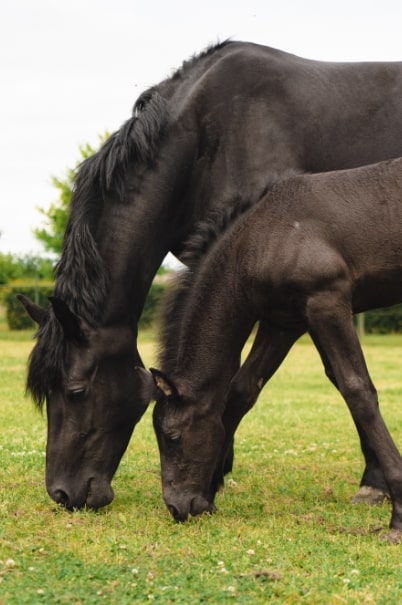Gastric ulcers are one of the most common medical conditions with horses. In fact, they are the leading cause of claims to insurers. It can be tricky to manage them, but a number of things can help. Crucially, you need to look at horse feed, amount of exercise, and even the timings.
An important thing to keep in mind is there are actually two types of gastric ulcers. You need to manage them differently.
Squamous
The first type of ulcer occurs on the top portion of a horse’s stomach. It happens because stomach acid damages the non-glandular lining.
A number of factors can lead to squamous ulcers. Most crucially is the amount of exercise. When exercising, movement pushes acid up onto the top of the stomach. So, if there are long periods of activity, it can cause a lot of damage and lead to ulceration. Horses that trot, canter, and gallop more frequently and for longer periods have a higher risk. Issues with horse feed could be to blame too.
Glandular
The second type of ulcer occurs at the bottom of the stomach. Here, acid damages the glandular mucosa.
The challenging thing with glandular ulceration is the exact cause is unknown. It could be due to issues with natural defence against stomach acid. However, a common factor is over-exercise. If horses exercise more days per week without sufficient rest, they have a higher risk of experiencing this kind of ulcer.
How to manage ulcers?
There are a couple of things you can do to reduce the risk of ulcers. Crucially, you need to ensure you provide the right horse feed. Concentrates are fine, but you must also give sufficient forage and make sure it is high fibre. Ensure the horses actually eat it frequently too; it helps to reduce the risk because there will be food in the stomach and they will generate more saliva to neutralise acid. Additionally, make sure the horse has enough water.
Timing when you feed and ride a horse is vital too. Horses typically don’t eat a lot in the mornings. So, ideally you should be looking to exercise later in the day when it is more likely there will be food in the stomach. It will provide a buffer to stomach acid. Feeding some forage when preparing for exercise is helpful too.
If horses suffer with glandular ulceration, you should manage stress levels. You can do a number of things here, including enriching the environment, allowing cohabitation and mutual grooming, and ensuring consistency with riders and handlers.
Speak to us about horse feed
JS Hubbuck Ltd knows how hard it can be for owners to keep their horses happy and healthy. A good diet and effective management are vital. As we said, the right feed, and ensuring it is high quality, is something you must think about. It can help with conditions like gastric ulcers.
If you do need horse feed, you can speak to us. We have some fantastic products and great knowledge, so you can be confident whenever you buy from us.

